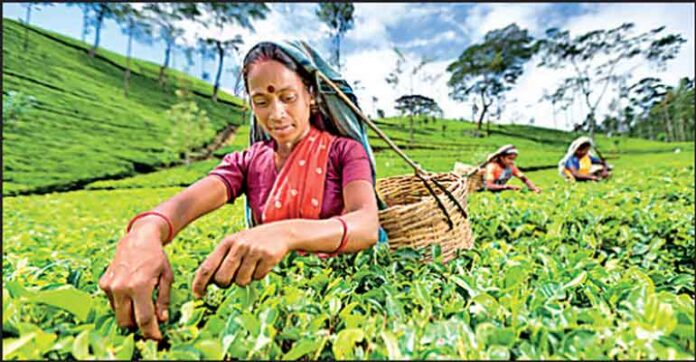By: Staff Writer
January 19, Colombo (LNW): The Planters’ Association of Ceylon (PA) has praised the Government’s decision to delay the abolition of the Simplified Value Added Tax (SVAT) system to 1 April 2025.
Initially planned for removal on 1 January 2024, this postponement came in response to strong opposition from exporters and business chambers.
While the delay provides temporary relief, the PA urged the Government to retain SVAT until a viable, stakeholder-endorsed alternative is implemented.
The SVAT system, introduced in 2011, has been crucial for Regional Plantation Companies (RPCs) and smallholder tea farmers. Eliminating SVAT without a robust replacement could disrupt Sri Lanka’s tea value chain, causing income losses for exporters, particularly tea and rubber smallholders, who form the backbone of the industry.
Historically, Sri Lanka’s tea industry thrived until 2014, with exports exceeding 300 million kg and generating $1.5 billion annually. However, adverse policy decisions, such as the 2015 Glyphosate ban and the 2021 fertiliser ban, severely reduced tea yields.
By 2023, production had dropped to 223 million kg, and export earnings fell to $1.3 billion, affecting the livelihoods of around 480,000 smallholders who rely on tea for sustenance.
Smallholders, who earn about Rs. 23,000 monthly on average, are particularly vulnerable. They receive 68% of auction prices for their green leaf, but the removal of SVAT could cost them Rs. 24 billion annually, representing an 18% income loss directly borne by smallholder families.
Over 90% of Sri Lanka’s tea is exported, and SVAT has mitigated cash flow issues by simplifying VAT refunds, which are often delayed for six to seven years. The recent imposition of an 18% VAT on exports exacerbates these issues, tying up vital capital and increasing operational costs for RPCs and smallholders alike.
For instance, with 1 kg of tea priced at Rs. 1,200, the 18% VAT adds Rs. 216, increasing the upfront cost to Rs. 1,416. Exporters must pay this VAT upfront, straining their cash flow and limiting reinvestment in production. These inefficiencies resulted in an alarming Rs. 60 billion in financial losses for the tea industry in 2023 alone.
The PA highlighted the urgency of a strategic Government intervention to support the sector. Key recommendations include ensuring access to affordable fertilisers and agrochemicals to lower production costs and increase productivity. Streamlining VAT refund processes is also critical to alleviate financial pressures on exporters and improve cash flow.
Competitor nations like Kenya exemplify what Sri Lanka could achieve with the right policies. In 2014, Kenya’s tea production stood at 415 million kg and rose to 550 million kg by 2023, showcasing remarkable growth. Meanwhile, Sri Lanka’s production has stagnated or declined, raising concerns about the industry’s future.
The PA stressed that retaining SVAT and implementing strategic reforms are essential to stabilising Sri Lanka’s tea industry, boosting its competitiveness, and restoring it to a trajectory of sustainable growth.

